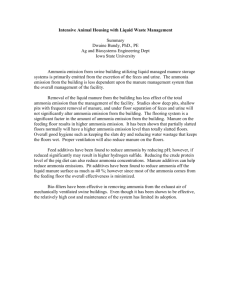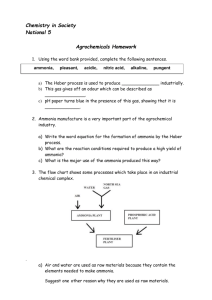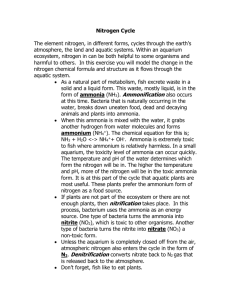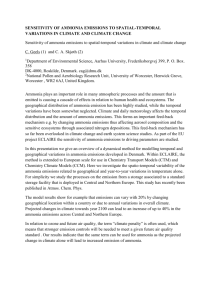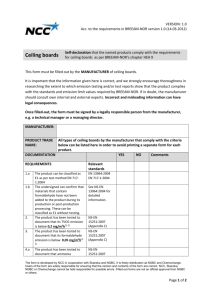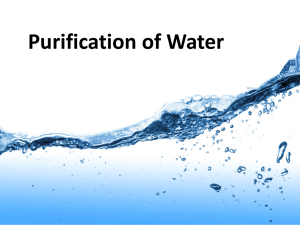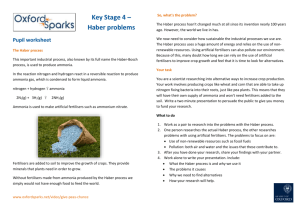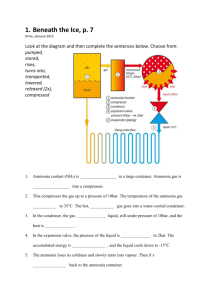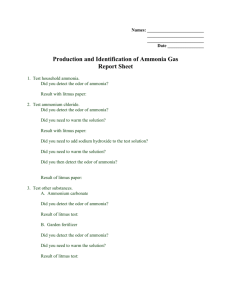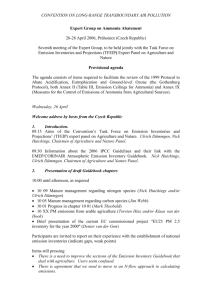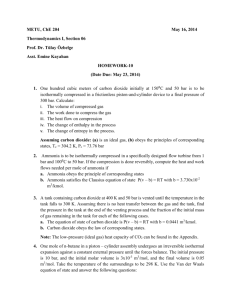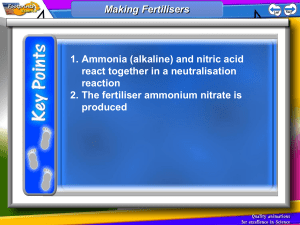global emission inventory for ammonia, with emphasis on livestock
advertisement
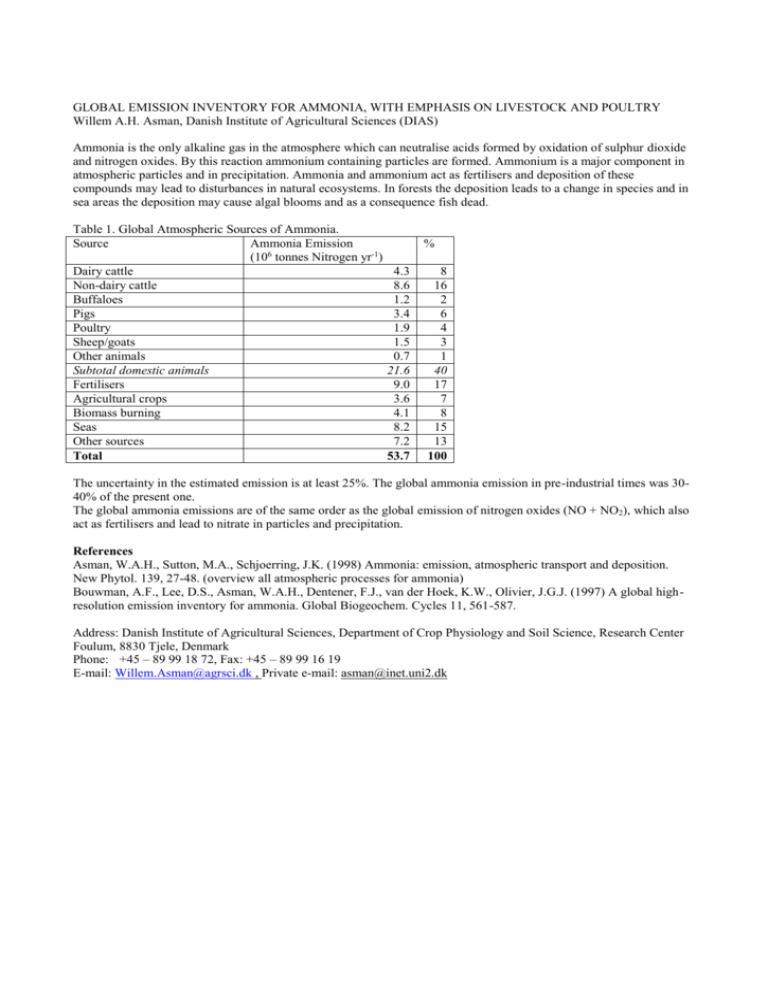
GLOBAL EMISSION INVENTORY FOR AMMONIA, WITH EMPHASIS ON LIVESTOCK AND POULTRY Willem A.H. Asman, Danish Institute of Agricultural Sciences (DIAS) Ammonia is the only alkaline gas in the atmosphere which can neutralise acids formed by oxidation of sulphur dioxide and nitrogen oxides. By this reaction ammonium containing particles are formed. Ammonium is a major component in atmospheric particles and in precipitation. Ammonia and ammonium act as fertilisers and deposition of these compounds may lead to disturbances in natural ecosystems. In forests the deposition leads to a change in species and in sea areas the deposition may cause algal blooms and as a consequence fish dead. Table 1. Global Atmospheric Sources of Ammonia. Source Ammonia Emission (106 tonnes Nitrogen yr-1) Dairy cattle Non-dairy cattle Buffaloes Pigs Poultry Sheep/goats Other animals Subtotal domestic animals Fertilisers Agricultural crops Biomass burning Seas Other sources Total % 4.3 8.6 1.2 3.4 1.9 1.5 0.7 21.6 9.0 3.6 4.1 8.2 7.2 53.7 8 16 2 6 4 3 1 40 17 7 8 15 13 100 The uncertainty in the estimated emission is at least 25%. The global ammonia emission in pre-industrial times was 3040% of the present one. The global ammonia emissions are of the same order as the global emission of nitrogen oxides (NO + NO2), which also act as fertilisers and lead to nitrate in particles and precipitation. References Asman, W.A.H., Sutton, M.A., Schjoerring, J.K. (1998) Ammonia: emission, atmospheric transport and deposition. New Phytol. 139, 27-48. (overview all atmospheric processes for ammonia) Bouwman, A.F., Lee, D.S., Asman, W.A.H., Dentener, F.J., van der Hoek, K.W., Olivier, J.G.J. (1997) A global highresolution emission inventory for ammonia. Global Biogeochem. Cycles 11, 561-587. Address: Danish Institute of Agricultural Sciences, Department of Crop Physiology and Soil Science, Research Center Foulum, 8830 Tjele, Denmark Phone: +45 – 89 99 18 72, Fax: +45 – 89 99 16 19 E-mail: Willem.Asman@agrsci.dk , Private e-mail: asman@inet.uni2.dk
